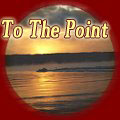- By Matthew P. Binkewicz
- Opinions
 Print
Print  To The PointHunting season is in full swing in New York State. This year marks the second season of big game hunting for me and my family. Our son introduced us to the sport last year when he turned fourteen years old and announced that he wanted to hunt.
To The PointHunting season is in full swing in New York State. This year marks the second season of big game hunting for me and my family. Our son introduced us to the sport last year when he turned fourteen years old and announced that he wanted to hunt. He had done the research and knew about the requirements for obtaining a hunting license which includes taking the hunter training safety course and passing the test. My wife and I decided to participate as well knowing he would need to be accompanied by an adult until he reached his 16th birthday.
Over the years, hunters and things associated with hunting have served comedians and satirists as they portray hunters in the most unfavorable light -- a cross between Cro-Magnons and beer guzzling, rednecks intent on shooting anything that moves including themselves.
Admittedly, there are a few reports of such activity in every state, but they pale in comparison with the millions who, with great respect for nature, animals, and fellow hunters, engage in an activity that benefits every aspect of society.
Hunting actually contributes to the economy. The 2006 US Fish and Wildlife Services reports 12.5 million people 16 years old and older enjoyed hunting a variety of animals within the United States. Hunting expenditures totaled $22.9 billion. By respecting seasons and limits, purchasing all required licenses, and paying federal excise taxes on hunting equipment and ammunition, individual hunters make a big contribution towards ensuring the future of many species of wildlife and their habitat.
By paying the Federal excise tax on hunting equipment, hunters are contributing hundreds of millions of dollars for conservation programs that benefit many wildlife species- hunted and non- hunted. The sale of hunting licenses, tags, and stamps is the primary source of funding for most state wildlife conservation efforts.
Each year, nearly $200 million in hunters' federal excise taxes are distributed to State agencies to support wildlife management programs, the purchase of lands open to hunters, and hunter education and safety classes. Proceeds from the Federal Duck Stamp, a required purchase for migratory waterfowl hunters, have purchased more than five million acres of habitat for the refuge system (2005 statistic). These lands support waterfowl and many other wildlife species.
Local hunting clubs and national conservation organizations work to protect the future of wildlife by setting aside thousands of acres of habitat and speaking up for conservation in our national and state capitals.
I grew up in a household of hunters, and the makeup of our hunting party may surprise some readers. My father, a retired IBM Manager, marked his 65th year of hunting. He speaks two foreign languages and has held office in numerous civic and fraternal organizations. Among the younger members, four hold bachelor degrees and of those four, three have master’s degrees. One is a sophomore in college and one a freshman in high school.
Every member of the group knows the rules of good sportsmanship, ethical behavior, and respect for nature. There are no second chances with a loaded weapon so the only safe shot is one that will not endanger another human being or simply injure an animal. We are in constant communication with one another via walkie-talkies. No one is ever in harm’s way.
Hunters are responsible for management of wildlife as well. Without natural predators such as mountain lions, wolves, and other large cats, small and big game would overpopulate and suffer from cycles of starvation and disease. Game animals are carefully managed and species are regulated by legalized hunting. The annual harvest of small and big game provides meat for those who hunt as well as for food banks and soup kitchens across the nation. Hunters are generous by nature and most are willing to share in the bounty of a successful harvest.
There has never been nor will there ever be alcohol in our vehicles, at the camp, or on our person while we are hunting. Our celebrations take place at home with the guns safely locked and stored in their cases. After all, half of the fun of hunting is retelling the stories to those who did not actually witness the events of the day nor experience the majestic beauty that lies just outside our front doors. And that is to the point.
----
v5i47



